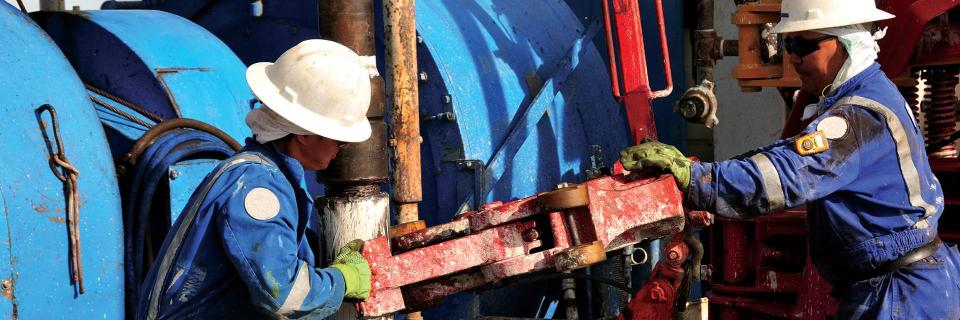
The oil drilling business is booming nationwide. Whether your company operates in Texas or the Bakken Basin, you may be scrambling to add new equipment that meets rising customer demand.
Fracturing equipment, acid pumps, kill trucks, batch mixers and other assets can cost hundreds of thousands of dollars. That is why many oilfield services companies choose to lease their equipment. Avoiding the big down payments and interest that come with traditional lending can free up more cash flow for your company to operate and expand.
Here are a few reasons why leasing can be better than buying equipment for your oilfield services company:
Less expense and more capital
The greatest benefit of leasing is you can save cash and apply it to other parts of your business. There is usually no down payment with leasing. An open-end lease offers the most flexibility in operating equipment. It allows you to treat lease payments as an expense on your income statement. This kind of lease provides significant tax benefits without the lease obligation affecting your balance sheet. You can treat the lease payments as monthly operating expenses and deduct them from your company’s tax return.
Leasing equipment spares you the time and energy of seeking a line of credit to finance a purchase. You may also be able to afford more expensive equipment by leasing instead of buying it.
Most lease agreements offer fixed terms for a period of 24, 36, 48 or 60 months. Unlike traditional financing, you do not need to pay more each month to reduce your company’s interest. That makes it easier for your company to plan its operating budget around a lease payment.
Less risk and more flexibility
As much as 85% of small- to mid-sized businesses lease equipment, according to GE Capital. These companies realize that they can be more profitable by operating machinery instead of owning it. Leasing also provides greater flexibility in case of an unforeseen expense or an economic downturn.
For your oilfield services company, short-term leases allow you to expand and reduce the amount of equipment your company operates as the market changes. Leasing also helps you determine if new equipment or technology is a good fit for your company before you invest in a long-term commitment.
There are many types of lease agreements that allow you to purchase the equipment at the end of the lease term. A fair market value lease provides several flexible options. Once the term expires, you can return the equipment to the lessor, renew the terms, or buy the equipment at its fair market value. Another common lease is the “dollar buyout,” which guarantees the option of buying equipment for $1 at the end of the lease agreement.
Fewer maintenance headaches
One of the drawbacks of owning equipment is that you are responsible for its upkeep. Breakdowns can lead to unexpected expenses and interruptions to your business. If you have a full-service lease agreement, the leasing company is responsible for the maintenance.
An easy exit plan
Equipment depreciates in value as it ages and takes on wear-and-tear. When you own assets that you no longer need, you have to figure out how to sell them. You will likely have to sell them at a much lower price than what you paid to acquire them. Negotiating a competitive lease rate up-front on equipment eases the worry of depreciation. It also spares you the time and effort of finding a buyer later on.
Sources: GE Capital, Equipment Finance Advisor, Fleet Owner, The Truck Blue Book, Penske Truck Leasing, Merchants Fleet Management, www.leasestation.com